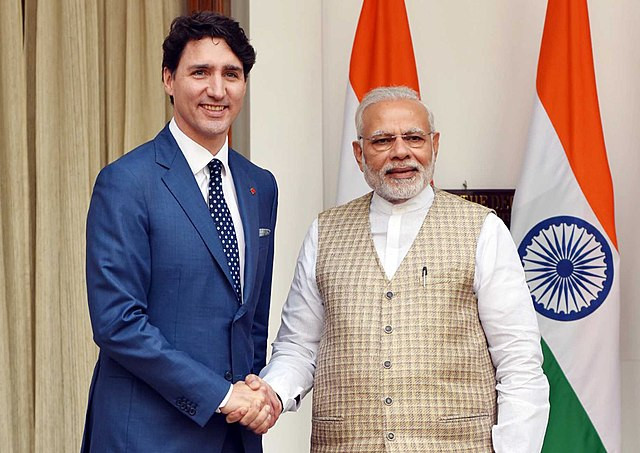In a dramatic escalation of diplomatic tensions between Canada and India, the Canadian government has publicly accused India's Home Minister, Amit Shah, of orchestrating a campaign targeting Sikh separatists on Canadian soil. The accusations have raised concerns about transnational repression and strained relations between the two countries, both of which are key allies of the West.
The allegations surfaced during testimony before a parliamentary security committee, where Canadian Deputy Foreign Affairs Minister David Morrison confirmed that he had shared information with The Washington Post regarding Shah's role in the campaign of intimidation, violence, and even murder targeting Sikh activists. Morrison stated, "The journalist called me and asked if it was that person. I confirmed it was that person," referring to Amit Shah, Prime Minister Narendra Modi's closest political ally. However, Morrison did not provide further details about how Canadian intelligence linked Shah to these activities.
The Indian government, while yet to respond specifically to the naming of Shah, has consistently dismissed Canada's accusations as baseless and politically motivated. India has accused Canada of harboring extremists linked to the separatist Khalistan movement, which seeks to create an independent Sikh state in India's Punjab region. The movement is outlawed in India but maintains strong support among segments of the Sikh diaspora in Canada and other countries, such as the U.K. and the U.S.
The Canadian allegations have particularly highlighted the murder of Hardeep Singh Nijjar, a prominent Sikh separatist leader who was gunned down outside a gurdwara in Vancouver last year. Canadian officials have directly implicated Indian diplomats and intelligence agents in Nijjar's killing, accusing them of carrying out a coordinated campaign of threats, extortion, and violence against members of the Sikh community in Canada. In response, Canada expelled multiple Indian diplomats, including India's high commissioner. India retaliated by expelling Canadian diplomats from New Delhi, signaling a deepening diplomatic rift.
Prime Minister Justin Trudeau addressed the matter during a recent parliamentary hearing, asserting that Canadian intelligence has uncovered a clear link between Indian government agents and a series of violent activities in Canada, including "drive-by shootings, home invasions, violent extortion, and even murder." Trudeau emphasized that Canada had initially tried to resolve the issue discreetly through diplomatic channels, but met with persistent denials from Indian officials.
Beyond the assassination of Nijjar, Canada has accused India of engaging in broader transnational repression aimed at silencing Sikh separatist activists around the world. This strategy, Canadian officials suggest, includes leveraging criminal networks and using diplomatic cover to coordinate covert operations. In a particularly notable case, U.S. authorities last year indicted an Indian intelligence operative, Vikash Yadav, on charges of plotting to murder Gurpatwant Singh Pannun, a Sikh separatist leader based in the United States. The U.S. Department of Justice described Yadav's case as a "grave example" of India's attempts to suppress Sikh separatism abroad through violent means.
While Canada has arrested three Indian nationals allegedly involved in Nijjar's assassination, no charges have been brought against any Indian government officials. The ongoing investigation continues to probe India's involvement in the plot, and Canadian authorities have expressed frustration over India's refusal to cooperate with the inquiry.
The escalating tensions between Canada and India have also posed challenges for Washington, as the U.S. navigates its own relationship with India, a key player in balancing China's influence in the region. Both Canada and the U.S. have strategic and economic interests in maintaining strong ties with India, but the growing allegations of extraterritorial repression threaten to complicate those relationships.
The broader implications of Canada's accusations against India could also impact international norms concerning sovereignty and human rights. As allegations of foreign interference and violence mount, experts suggest that India's actions may draw further scrutiny from Western democracies and human rights organizations concerned about the global rise of state-sponsored repression.
Despite these allegations, India continues to maintain that it has not received any credible evidence from Canada supporting the claims. Indian officials have called the accusations "absurd" and insist they are part of a broader effort by Canada to shield extremist elements within its Sikh diaspora.




